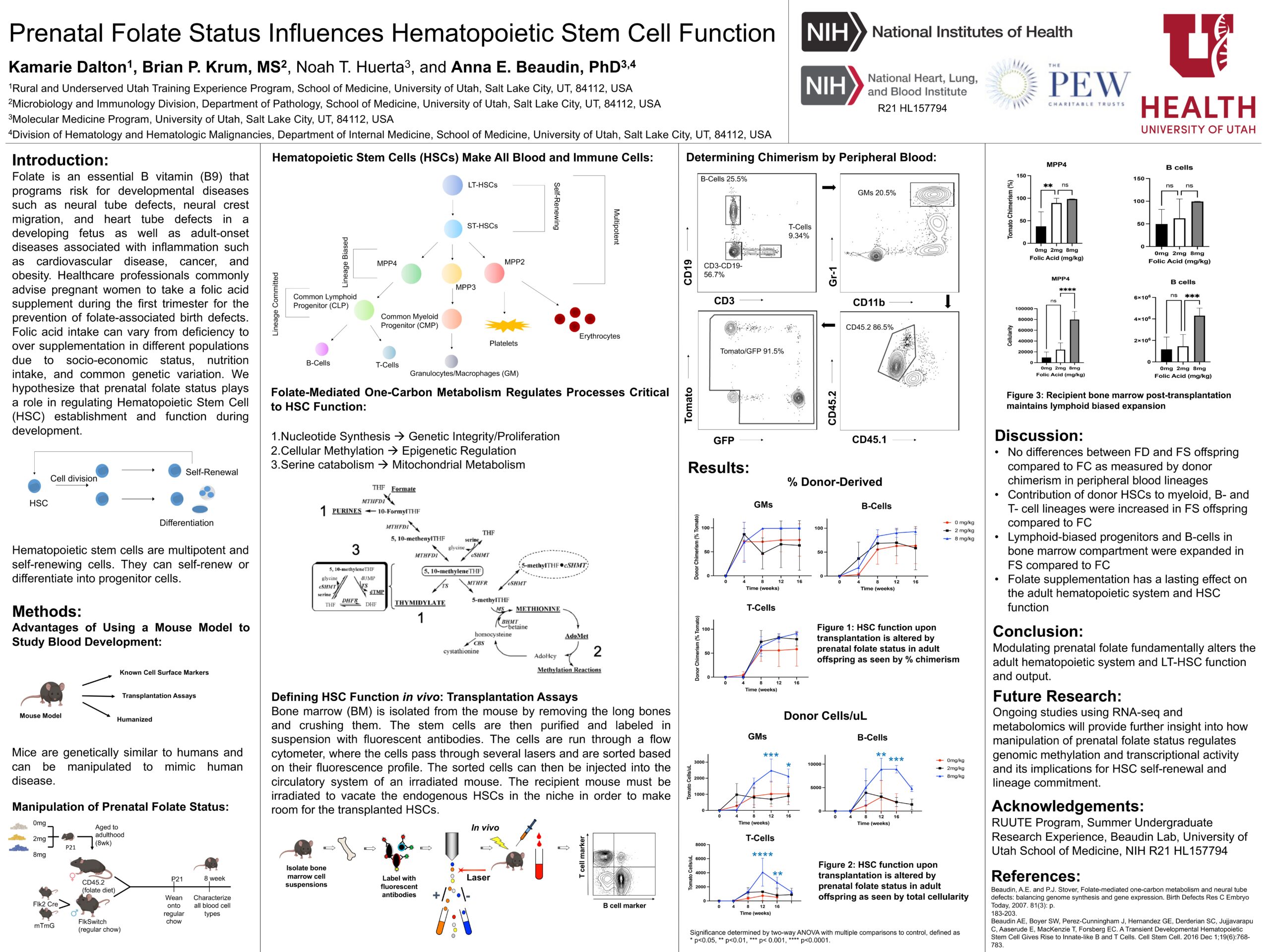Presenter Name: Kamarie Dalton
Description
Folate is an essential B vitamin (B9) that programs risk for developmental diseases such as neural tube defects, neural crest migration, and heart tube defects in a developing fetus as well as adult-onset diseases associated with inflammation. Healthcare professionals advise pregnant women to take a folic acid supplement during the first trimester for disease prevention. Folic acid intake can vary from deficiency to over supplementation in different populations due to socio-economic status, nutrition intake, and common genetic variation. Folate-mediated one-carbon metabolism (OCM) directly regulates critical cellular processes, including all cellular methylation reactions, de novo nucleotide biosynthesis, and mitochondrial metabolism. These processes regulate the establishment and function of hematopoietic stem cells (HSCs). To test the effect of prenatal folate status on HSC development, wildtype female mice were fed an experimental diet from weaning through birth to model folate variability within the population: 0mg/kg (deficient FD), 2mg/kg (control FC), and 8mg/kg (supplemented FS) and bred at 8 weeks of age. To test prenatal folate status on HSC function, competitive transplantation assays were performed using purified HSCs isolated from adult offspring born to females maintained on experimental diets through weaning. In a competitive transplantation assay, rare HSCs are isolated from the bone marrow (BM) of "donors" and purified by fluorescence-activated cell sorting (FACS) and transplanted into irradiated "recipients" along with whole BM competitor cells. We measured chimerism---the contribution of transplanted HSCs to all mature peripheral blood lineages-every 4 weeks for 20-weeks post-transplantation by peripheral blood analysis in recipient mice and determined in all BM populations at 20 weeks. There were no differences between FD and FS offspring compared to the FC as measured by donor chimerism in any peripheral blood lineages. However, the contribution of donor HSCs to myeloid, B- and T- cell lineages were increased in FS offspring as compared to FC, indicating there was a lasting effect of folate supplementation on HSC function. Furthermore, both lymphoid-biased progenitors and B-cells in the BM compartment were expanded in the BM of FS offspring as compared to FC offspring. These preliminary data shows that prenatal folate supplementation can have lasting effects on the adult hematopoietic system and HSC function. Ongoing studies using RNA-seq and ATAC-seq will provide further insight into how manipulation of prenatal folate status regulates genomic methylation and transcriptional activity and its implications for HSC self-renewal and lineage commitment.
University / Institution: Southern Utah University
Type: Poster
Format: In Person
Presentation #D29
SESSION D (3:30-5:00PM)
Area of Research: Health & Medicine
Email: 6daltons@gmail.com
Faculty Mentor: Anna Beaudin

